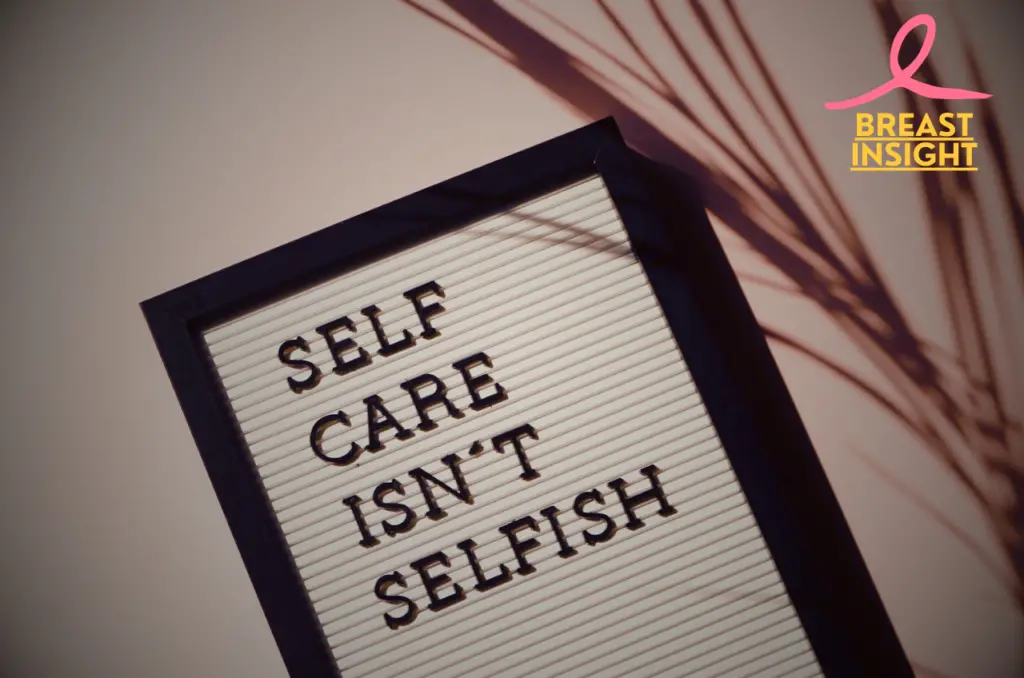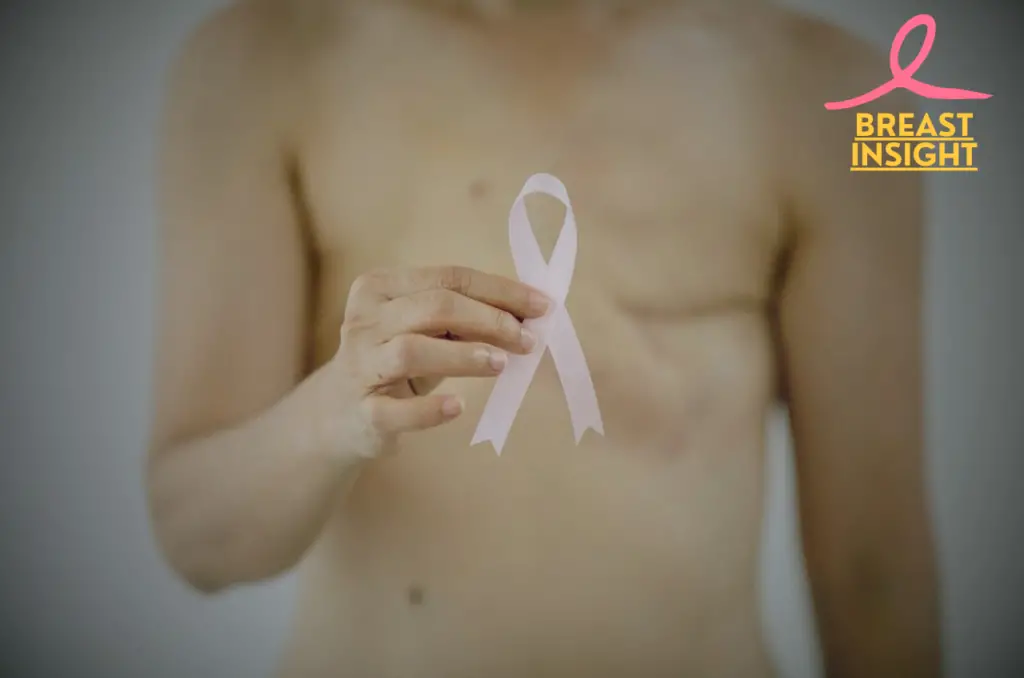You think that the toughest journey of life, breast cancer, will have an additional shock to your mind-in fact, your thoughts against you. For most women, the emotional distress is just as challenging as physical pain due to breast cancer treatment. The good thing, however, is that you’re not alone; and here are some means through which you can get well by taking care of your mental health during these difficult times.
The mental health problems with which breast cancer treatment may present are from deep anxiety to crippling depression, often appearing hopelessly insurmountable. Think of the possible payback in having a portfolio of effective coping skills available to you. Think of the confidence of knowing you could clearly express your needs to your healthcare professionals or access to expert professional help that is specifically geared toward your situation. Understanding the hidden factors that influence breast cancer’s onset can also empower you with knowledge and better equip you to handle the challenges. Learn more about how breast cancer starts and the 5 hidden factors here.
This blog post looks into the complex relationship involving mental health during breast cancer treatment, offering useful strategies and important resources to work through this challenging landscape. This will include insights in the emotional upset one is likely to encounter as well as identification of effective ways for sustaining emotional wellness in such scenarios. We’ll walk you through this journey so that you can now put your mental health front and center in the quest against breast cancer.

Understanding of Mental Health during Treatment of Breast Cancer
Common emotional response to diagnosis and treatment
Getting the diagnosis of breast cancer can be a very emotional experience. Patients may experience:
- Shock and disbelief
- Fear and apprehension
- Anger and frustration
- Sadness and depression
- Guilt or shame
These feelings can shift during therapy, impacting daily life and relationship. In fact, breast cancer often has hidden effects on both mental and physical health. Explore these 6 hidden effects of breast cancer to stay informed.
Influence of physical problems on mental health
The physical traumas of breast cancer treatment significantly impact mental health:
| Physical Symptom | Mental Health Impact |
| Fatigue | Decreased motivation, feelings of helplessness |
| Pain | Increased irritability, difficulty concentrating |
| Body changes | Lowered self-esteem, altered body image |
| Sleep disturbances | Mood swings, cognitive impairment |
Recognizing symptoms of depression and anxiety
It’s very important to know the signs of depression and anxiety, which can include:
- Persistent sadness or emptiness
- Loss of interest in activities
- Excessive worry or fear
- Changes in sleep or appetite
- Having trouble focusing or making choices
The importance of addressing mental health alongside physical health
Focusing on mental health is very important for treatment success. A complete approach that takes care of both physical and emotional needs can result in:
- Adherence of treatment
- Better pain management
- Improved standards of living
- Stronger support network utilization
Now that we have discussed the mental health problems surrounding the treatment of breast cancer, let’s discuss good ways to cope and maintain emotional well-being during these difficult times.

Effective Coping Strategies for Emotional Well-being
Now that we are aware of this, let’s explore some ways to stay emotionally healthy during breast cancer treatment.
Practice mindfulness and relaxation techniques
Among the many anxiety-reducing tips, a mindful and relaxing routine really help ease off stress. Here are some techniques:
- Deep breathing exercises
- Guided imagery
- Progressive Muscle Relaxation
- Meditation
Maintaining a group of friends and family for support
A support system is very important in breast cancer. Here is how to nurture your relationships:
- Be honest about your needs and feelings
- Accept help when needed
- Join support groups to make friends dealing with similar challenges
Interestingly, advancements in breast cancer care and awareness have contributed to declining mortality rates. Learn about the five key factors driving this positive trend.
Engaging in physical activity and exercise
Regular exercise can increase your mood and energy. Consider these options:
| Activity | Benefits |
| Gentle yoga | Improves flexibility and reduces stress |
| Walking | Enhances cardiovascular health and mood |
| Swimming | Low-impact exercise that’s easy on joints |
Exploring creative outlets for self-expression
Creativity can be a very emotive tool to process emotions. Try these activities:
- Journaling
- Art Therapy
- Music or dance
- Photography
Self-care and Rest
Self-care is essential during breast cancer treatment. Make time for:
- Sufficient sleep
- Healthy food
- Relaxing activities you enjoy
- Setting limits to prevent exhaustion
These strategies help you keep your feelings under control during breast cancer treatment. Next, we’ll consider why seeking professional help at the right time is necessary.

Seek Professional Counseling
When you have breast cancer, getting help from professionals can greatly improve your mental health. Let’s look at the different ways to support you during this tough time.
Advantages of therapy and counseling
Therapy and counseling are many benefits for breast cancer patients:
- Feelings releasing
- Coping skill development
- Effective communication
- Reduce stress
- Better quality of life
Types of mental health professionals specializing in cancer treatment
| Professional | Specialization |
| Psycho-oncologists | Cancer-specific mental health |
| Clinical psychologists | General mental health |
| Psychiatrists | Medication management |
| Social workers | Practical support and resources |
Facing a breast cancer diagnosis can bring a whirlwind of emotions. If you’re also worried about procedures like biopsies, staying calm is essential. Here are six tips to ease your mind before a breast biopsy.
Support groups and peer counseling options
Support groups offer a unique opportunity to interact with people who have experienced a similar situation. The groups offer:
- Shared experience
- Useful tips
- Emotional validation
- Sense of community
Peer counseling, often provided by survivors of breast cancer, and might offer valuable tips and hope.
Online therapy and telehealth services
Online therapy and telehealth services have become widely available as contemporary digital solutions. These options offer:
- Convenience
- Flexibility in scheduling
- Access to specialists regardless of location
- Comfort of receiving support from home
Having now discussed some of the professional support available, let’s now discuss strategies for communication with your health care providers that will assure you comprehensive care for both your body and mind.

Communication Strategies with Healthcare Providers
Talking clearly to your doctors is very important as you address the mental issues during breast cancer treatment. The following are some hints that may be helpful when talking:
A. Discussing mental health concerns with your oncology team
- Be open and honest about your emotional state
- Make a list of exact worries or signs to discuss
- Ask about potential adverse effects on mental health due to treatment
- Request for referrals to mental health professionals if needed
B. Advocating for integrated care approaches
It includes the treatment of physical as well as mental health in comprehensive care. Consider this:
| Integrated Care Benefits | How to Advocate |
| Comprehensive treatment | Request coordination between oncology and mental health teams |
| Improved overall outcomes | Ask about available integrated care programs |
| Reduced treatment burden | Inquire about on-site mental health services |
C. Exploring medication options for managing anxiety and depression
Discuss your medication options with your physicians:
- Share full medical history with any previous psychiatric treatment
- Ask about possible interactions with cancer treatments and psychiatric medication
- Discuss the pros and cons of the different treatment options
- Explore non-pharmaceutical options or adjunctive therapies
Understanding how medical imaging works, such as a breast MRI, is also crucial for your treatment decisions. Learn more about the insights, benefits, and limitations of breast MRIs.
How you feel during breast cancer treatment is an important consideration of your mental health. By discussions with your doctors and standing up for complete care, you can ensure that your physical and emotional needs are well cared during your treatment.

Practical Resources for Mental Health Support
Now that we’ve discussed communication strategies with healthcare providers, let’s explore practical resources to support your mental health during breast cancer treatment.
Cancer-specific mental health organizations and help lines
Many groups provide special help for cancer patients:
- American Cancer Society: 1-800-227-2345 (24/7 helpline)
- Cancer Care: 1-800-813-HOPE (4673)
- Living Beyond Breast Cancer: 1-888-753-5222
They give emotional support, information, and assist in finding local resources.
Mobile apps and online tools for mood tracking and stress management
Technology can prove a very good friend in the management of mental health:
| App Name | Features | Availability |
| Calm | Meditation, sleep stories | iOS, Android |
| Headspace | Guided meditation, mindfulness exercises | iOS, Android |
| Moodfit | Mood tracking, CBT techniques | iOS, Android |
| Cancerlife | Social network for cancer patients, symptom tracking | iOS, Android |
Coping skills education materials and workshops
Many groups provide free resources to help you build coping skills:
- National Cancer Institute’s “Coping with Cancer” booklet
- CancerCare’s complimentary online workshops
- Breast Cancer Now’s “Moving Forward” course
These materials speak about managing anxiety, being aware, and becoming better at communicating with loved ones.
Financial assistance programs for mental health services
Don’t let financial problems stop you from getting help for your mental health.
- Cancer Financial Assistance Coalition – offering a searchable list of financial help resources
- CancerCare Financial Assistance Program
- Patient Advocate Foundation – helps with case management services and offers financial assistance
Remember, utilizing these resources can significantly improve your mental well-being during breast cancer treatment. It’s essential to reach out and take advantage of the support available to you. Also, understanding the importance of early detection in breast cancer can greatly impact your treatment journey. Learn about 5 key facts on how diagnostic mammograms save lives.

Conclusion
Dealing with the emotional problems of breast cancer treatment can be very challenging. However, with the right strategies and help, it is possible to stay mentally healthy during this time. By knowing the usual mental health issues, using good coping methods, and getting professional help when needed, patients can manage their feelings better. Talking openly with healthcare providers and using available resources are important steps to handle mental health problems during treatment.
Always keep in mind that your emotional care is as important as maintaining your physical health while going through treatment for breast cancer. Do not hesitate to ask for help and seek out the many resources offered. Caring for one’s emotional well-being will assist you in facing treatment much stronger and more resilient and, therefore, better at improving your quality of life during this challenging time.
Frequently Asked Questions (FAQs)
How can breast cancer treatment affect mental health?
1. It induces fatigue, anxiety, and mood swings.
2. Hormonal changes can cause feelings of sadness or annoyance.
3. Fear of recurrence and uncertain future is a stress booster.
4. Physical changes like hair loss can impact self-esteem.
What are some tips to manage anxiety during treatment?
1. Use relaxation methods like deep breathing and meditation.
2. Engage in light physical activities such as yoga or walking.
3. Live a routine life to create a pattern.
4. Limit exposure to overwhelming or negative news.
Where can I find mental health support?
1. Participate in support groups for breast cancer patients.
2. Consult an oncology social worker or counselor.
3. The American Cancer Society or CancerCare can be contacted.
4. Virtual peer support, canvass online forums.
How can family and friends help improve mental health during treatment?
1. Offer to accompany the patient to medical appointments.
2. Provide emotional support by check INS and talking.
3. Help with everyday jobs to make things easier, like cooking or cleaning.
4. Refer them to a mental health professional, if they need counseling.
What self-care practices are beneficial during breast cancer treatment?
1. Prioritize sleep and rest to support emotional well-being.
2. Support the energy and mood through a balanced diet.
3. Engage in hobbies or activities that spread joy.
4. Make achievable goals and enjoy small successes.

